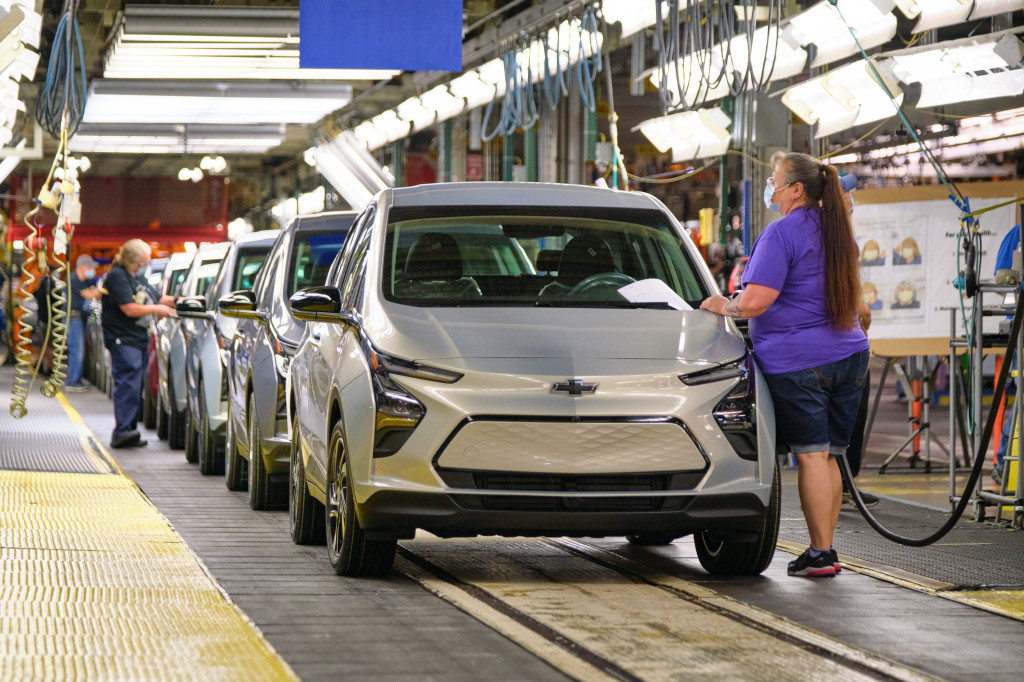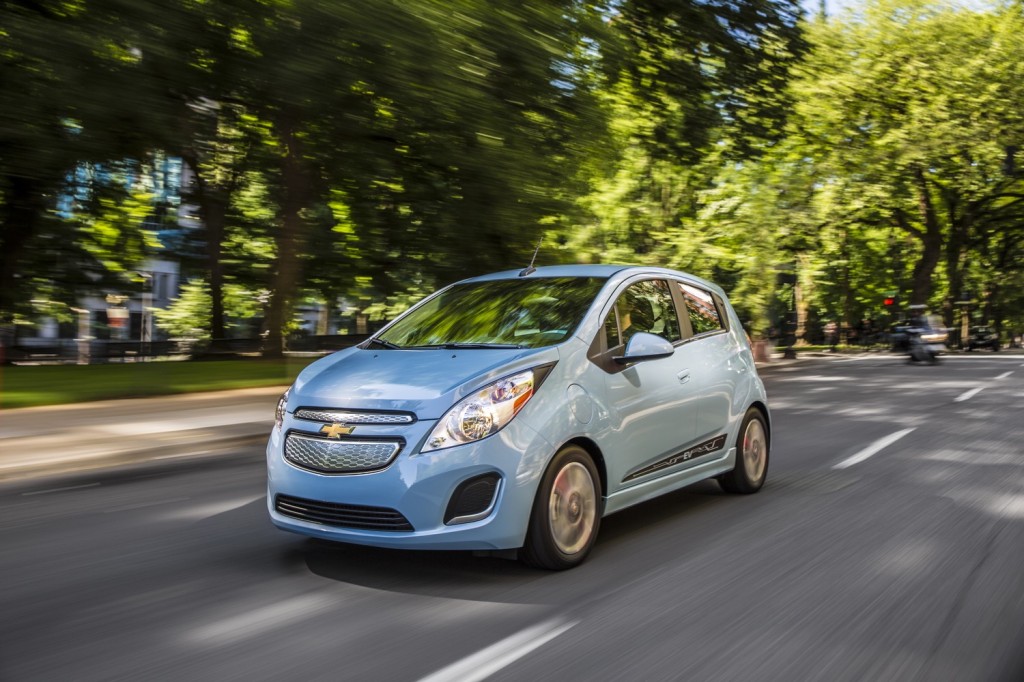The infrastructure and social policy bills passed by the United States House of Representatives this week include many EV provisions, from investments in charging infrastructure to a rejuvenated EV tax credit. Now they head to the Senate.
The Build Back Better Act (H.R. 5376) replaces the current federal EV tax credit with a new one that eliminates the 200,000-unit cap for manufacturers to qualify. The base credit is $4,000 while vehicles with battery packs 40 kwh or larger qualify for the same $7,500 as the current credit.
The credit also includes an income cap of $250,000 ($500,000 for joint filers) and price caps of $80,000 for vans, SUVs, and pickup trucks, and $55,000 for all other vehicles. Beginning in 2027, only vehicles assembled in the U.S. will be eligible for the credit.

2022 Chevrolet Bolt EUV and EV production starts
The controversial union-made bonus also made it through to the final House version of the tax credit, which adds $4,500 for vehicles assembled in domestic union factories. There's been significant pushback against the union-made bonus, particularly from automakers with non-union U.S. factories.
Another surprise is that a used EV tax credit has made it this far. Proposed earlier this year, the final House version includes a $2,000 base credit and an additional $2,000 for EVs in use prior to January 1, 2027 with battery packs of no less than 40 kwh, for a potential $4,000 in total.
The used EV tax credit takes effect January 1, 2022 and expires December 31, 2031 and has an income-based phaseout of $200 for each $1,000 of a taxpayer's modified adjusted gross incomes that exceeds $250,000 ($500,000 for joint filers).

2015 Chevrolet Spark EV
Meanwhile, the Infrastructure Investment and Jobs Act (H.R. 3684) includes $7.5 billion for EV charging, $5 billion for zero-emission and low-carbon school buses, and a grant program to fund expansion of domestic battery manufacturing, among other provisions.
The next step for these EV-friendly policies is Senate approval. While the two houses of Congress initially produced different versionsof the expanded EV tax credit, the House had already adjusted its version somewhat in sync with the Senate on some aspects—like the vehicle price cap.












